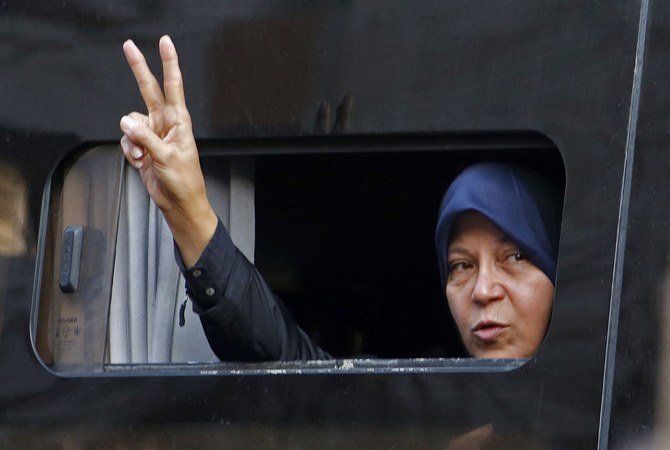.Iranian government had been referring to the protests as ‘riots’ and ‘sedition’ to suppress them
Faezeh Hashemi, the daughter of former Iranian president Akbar Hashemi Rafsanjani, has been arrested in Tehran by security forces for ‘inciting riots’ that were triggered by the death of 22-year-old Mahsa Amini while on police custody.
Before her arrest, Hashemi had said that the Iranian government has been referring to the protests for the past days as ‘riots’ and ‘sedition’ to suppress them, was used as the basis for her detention, news website Radio Farda reported.
Amini, who is Kurdish, was visiting Tehran with her family to visit relatives when she was accosted by the notorious morality police for allegedly breaching Iran’s strict dress code – including wearing of the hijab or head covering – and eventually arrested.
Her relatives claimed the beatings Amini received from the morality police, including a violent blow to the head that caused her death.
“What [authorities] want to convey is that these are not protests, they’re riots, but in fact they are protests,” Radio Farda quoted Hashemi in an audio recording it obtained.
“Those who have seen the protests know that, for example, if the youth set fire to garbage cans, it’s because the [security forces] have used tear gas and they want to neutralize it; or when they beat a member of the security forces it’s because they have been attacked and they’re defending themselves,” she said.
Meanwhile, hundreds of academics issued an open letter urging feminist communities to join them in building transnational solidarity with women and marginalized groups in Iran.
The letter was signed by academics including those from universities in Europe, the United States, Canada and Australia who said that the death of Amini was ‘among many other state murders committed systemically and purposefully by the gender-apartheid regime of Iran.’
“This country-wide revolt is against not only the brutal murder of Mahsa but also the essence of the Islamic regime,” the letter said. “The demand is loud and clear: an end to a theocratic regime whose multi-faceted violence against marginalized bodies is manifested in Mahsa’s death.”

